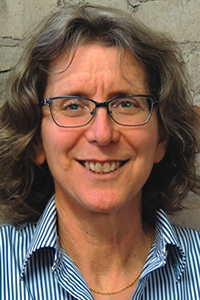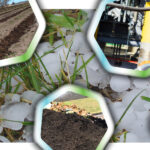
Nora Goldstein
BioCycle September 2018
When developing the agenda for a BioCycle Conference, we invest a lot of time speaking with people involved in the topics we are covering. The purpose is to get up to speed on policies, regulations, facilities, research, innovations, end markets, pressure points and opportunities so that the Conference sessions are relevant, informative and timely.
Agenda development for BioCycle’s 18th Annual Conference on Renewable Energy From Organics Recycling (BioCycle REFOR18), October 15-18, 2018 in Raleigh, North Carolina, was no exception. This spring, and into the summer, I took a deep dive into all things anaerobic digestion, biogas, composting and overall organics recycling in North Carolina to take the pulse of the state’s “playing field.” This was supplemented with conversations with colleagues at the American Biogas Council, a variety of federal, state and local agencies, and others. The takeaways were morphed into BioCycle REFOR18 presentations, then combined with the excellent abstracts submitted to create the final agenda.
The Opening Plenary Think Tank on Tuesday, October 16, “Catalyzing The Biogas Economy,” kicks off what will be an exciting few days at BioCycle REFOR18. Think Tank panelists are Tanja Vujic, Director of Biogas Strategy in the Office of the Executive Vice President at Duke University; Charles Love, who works on the renewable energy acquisition team for Trillium, a member of the Love’s Travel Stops family of companies; Robert Bonnie, former Under Secretary for Natural Resources and Environment at USDA during the Obama Administration, and a Rubenstein Fellow at Duke University, working on conservation and environmental issues in rural America; and Brian Paganini, Vice President and Managing Director of Quantum Biopower, Connecticut’s first merchant food waste anaerobic digestion facility.
Think Tank panelists represent different facets of the biogas supply chain, all whom have worked through some major challenges and roadblocks, and are now poised to help accelerate deployment of biogas infrastructure and increase production and utilization of Renewable Natural Gas (RNG), power, and high quality digestate products. Among the topics we will be exploring are the “dollars and sense” of expanding renewable energy from organics recycling. The industry has reached a point of maturity where technology deployment is widespread and markets for biogas are favorable in a number of regions.
But the “dollars” required to site, permit and build AD infrastructure, interconnect to the grid or inject into the pipeline, and recover nutrients in the digestate (to reduce nutrient loads and runoff) are a deterrent to more rapid deployment. This is where the “sense” comes in. Anaerobic digestion (preferably paired with composting) provides wins for the environment, the climate and, ultimately, the economy. It can bring revenue streams to livestock farmers, and help municipal wastewater treatment plants achieve net-zero energy at their utility. In North Carolina, AD is a tool to improve the management of livestock manure.
Our vision is that “sense” will supersede the “dollar” to accelerate deployment, at which point the “sense” will make “cents,” and in turn, improve the economics long-term. Please join us for BioCycle REFOR18, where talk about sense and cents will be lively, and lessons will be learned with universal application.









